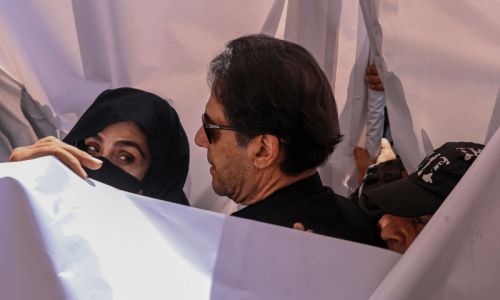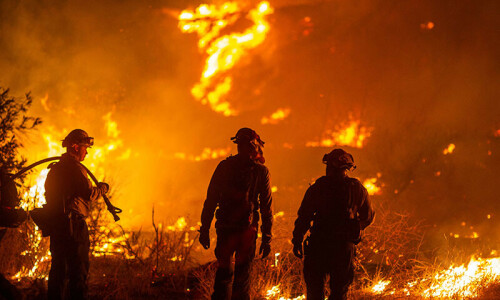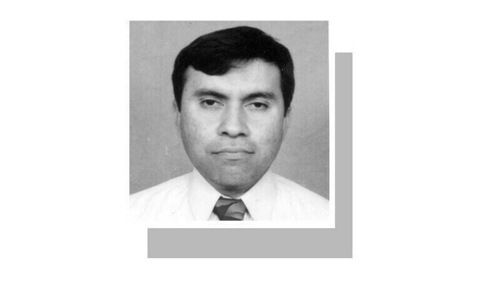ISLAMABAD: When Assistant Sub-inspector (ASI) Sameena Sarwar was a young girl, growing up in a village in Gujar Khan, she dreamed of wearing a uniform. “I never accepted societal notions of appropriate behaviour for girls; I rode my bicycle to college, I wanted to prove that anything my brothers could do, I could do better,” she says.
Her dream was realised when she passed the test for Pakistan’s police force and was invited to train at the National Police Academy. “Training at the academy is difficult, but only for those who land in the force accidentally,” she says with a grin.
Driven by passion, Sameena trained alongside men at the academy, enjoying every aspect of the training which included marksmanship, physical fitness and courses on prosecution and investigation. “My favourite was rappelling. Descending from a high building with only a harness tied around you is dizzying but exhilarating,” she says.
At 24, she is now the Station House Officer (SHO) at the Islamabad Women Police Station in Sector G-7 with 46 women officials and 6 men under her command.
It is a job with immense responsibility; she lives at the station and has to be on call 24-hours a day. “I oversee the assigning of duties for the other girls here. We are also frequently required to join Rangers for search operations. Every night, I patrol at least two sectors of the capital. Some days, we are sent for duty at parliament or anywhere else where we are needed,” she says.
Sameena recalls her duties at the political sit-ins on Constitution Avenue, in August and September 2014, as her most enjoyable time on the force. “Another ASI and I were directed to go undercover to the sit-ins. We would go to Constitution Avenue in plainclothes and paint party flags on our faces. Then we would spend the rest of the evening chanting slogans and dancing with the women protesters,” she chuckles.
 |
Sameena explains that a woman’s softer touch is essential when dealing with domestic disputes. “Once, a girl came to the police station to register a complaint against her in-laws, who had taken her jewellery. Instead of registering a complaint, I went and met her father-in-law, explaining to him that the legal route would defame the family. They would have to repeatedly go to court. He understood and convinced his wife to return the jewellery.”
“I try my best to ensure that everyone who comes to the station leaves feeling like they have been served. We are a service. Not just a force,” she adds.
A man’s world
The capital’s Ramna police station stands like a fortress in the middle of Sector G-11. Inside the station, Assistant Superintendent of Police (ASP) Arsla Saleem, sits behind a large desk. She is one of Pakistan’s 22 women police officers. Men walk in and out with files, papers and requests. She deals with most visitors briskly, her tone friendly yet nonnegotiable. Finally, instructions are given to the peon outside, the door is shut and she leans back against her chair.
It is her second month on the job. Following her graduation from the Pakistan Civil Services Academy, she trained at the National Police Academy. “I am one of Pakistan’s 22 women officers. We were commissioned after General Pervez Musharraf announced women’s induction as regular officers in 2005,” she says.
According to her, as a woman she does not face discrimination from senior male officers or subordinates because she does not ask for special treatment. “When I wear this uniform, I think of myself as a police officer. Not a woman,” she says.
“This is not an easy job. But being a good police officer requires you to be courageous, tolerant and have the strength to withstand pressure. It’s not a position which is gender specific but personality specific,” she says.
“Women have to step up and join every field. We are 52 percent of the population. How can we not?” she adds.
Her days are busy. As the Sub-divisional Police Officer, she has two police stations and some 300 men and women under her command. The time of day is irrelevant, if there is an incident in the jurisdiction of her stations, she has to personally go to the crime scene.
Crime scenes, especially when involving murders and suicides, are never a pleasant sight to see, she says. “I am not immune to the sight of a dead body. It disturbs me. But as an officer you don’t have the luxury to show weakness. You have to remain unemotional for the sake of your team,” she said.
To unwind, she has taken up gardening and painting. Still life paintings of flowerpots hang on one wall, breaking the mundane routine of the office. “I have realised that my biggest fight is with myself. Everyone thinks they will go into the police force and change things but here the real challenge is to not allow one’s self to change,” she says.
Published in Dawn, April 5th, 2015
On a mobile phone? Get the Dawn Mobile App: Apple Store | Google Play













































